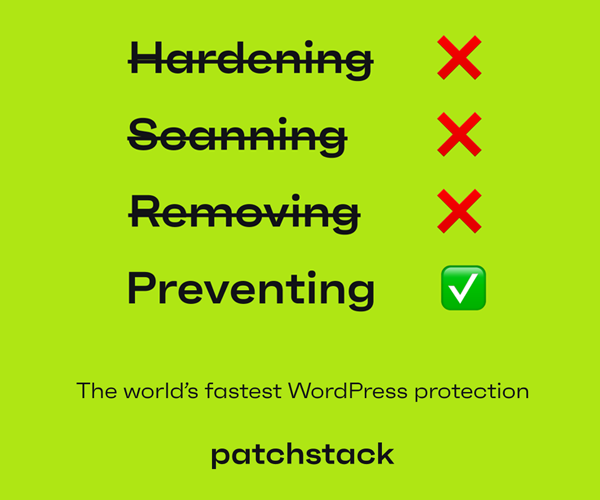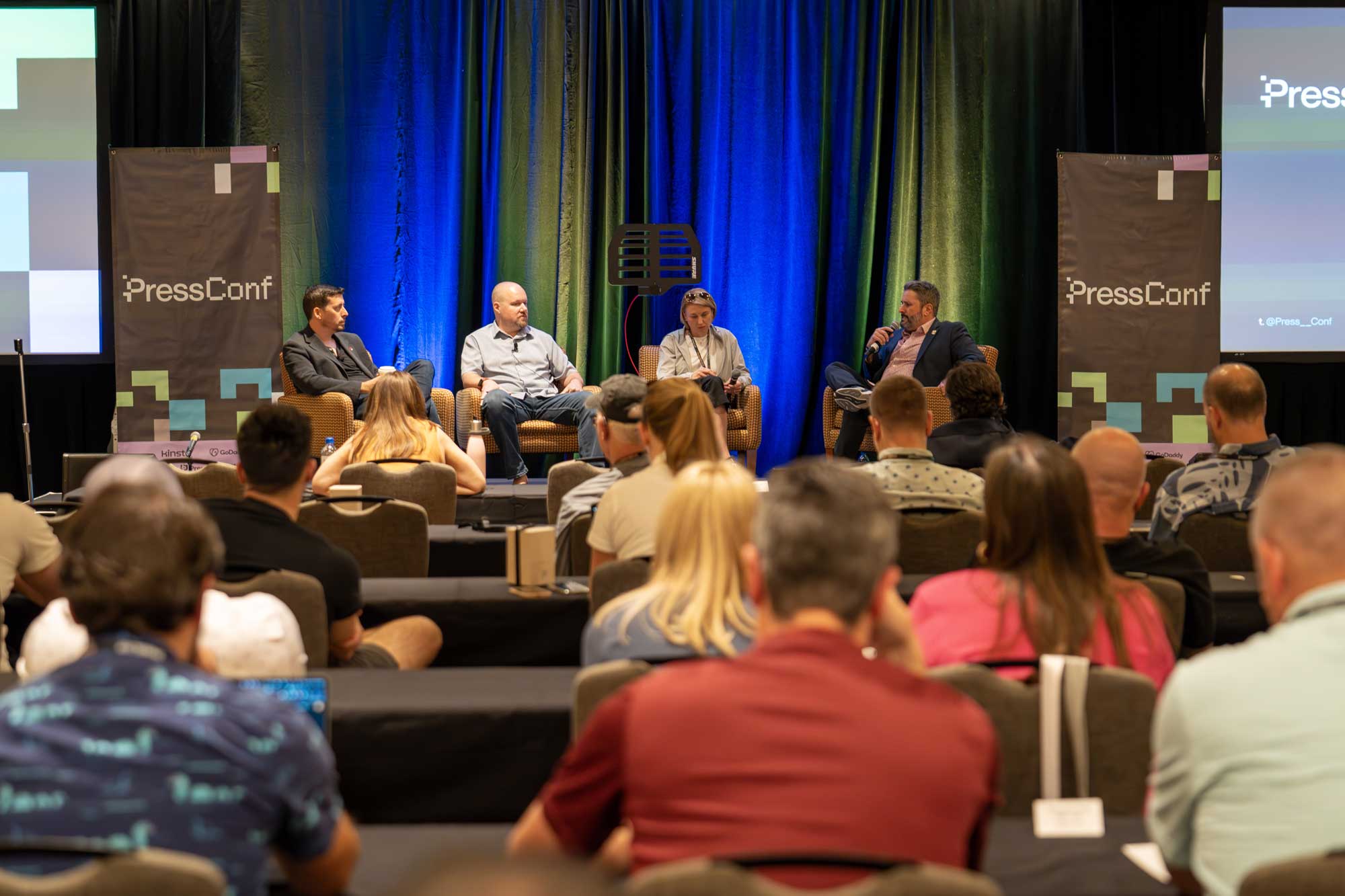Automattic has put hosting companies on notice, publishing a “legal perspective” this week on how the WordPress trademarks can be used to describe the use of the open source software for hosting purposes.
According to Neil Peretz, Associate General Counsel at Automattic, users of the WordPress software have “nominative fair use” rights. This means anyone who uses WordPress has the right to refer to the software by name. For example, “I built a website with WordPress.”
But he says the right to nominative fair use has “clear limits” under the law: it doesn’t include logos or the right to use the WordPress trademarks in a way that suggests a company is offering a product or service that comes from WordPress or is officially affiliated with WordPress.
“For example, calling a service ‘WordPress Hosting’ would not be nominative fair use because it makes many people think it is a hosting service offered by WordPress,” Peretz wrote.
“By contrast, offering ‘Hosting for websites built on WordPress software’ would not lead anyone to think the hosting service itself is offered by WordPress. Thus, calling a service ‘Hosting for websites built on WordPress software’ would be fair use of the WordPress marks.”
A Google search of “WordPress hosting” pulls up about 10.9 million results, including sponsored results from Nexcess, GoDaddy, and WP Engine, as well as results from Dreamhost, Namecheap, Hostinger, Pantheon, SiteGround, Cloudways, Kinsta, and Elementor.
It was revealed last week that the WordPress Foundation filed trademark applications for “managed WordPress” and “hosted WordPress” in July, sparking fears about the use of these phrases if these trademarks are granted. What’s clear is that Automattic is gearing up to enforce its trademarks.
Automattic clarified on X last week that using “WP” is not a trademark issue:
According to Automattic, Newfold Digital, which owns Bluehost, Yoast, and YITH, is currently the only sub-licensee of the WordPress trademarks.
The WordPress trademarks
Lawyer Richard Best, who has written about WordPress-related legal issues since 2015, has published a helpful guide to the WordPress trademarks and the classes of activity they cover.
According to the United States Patent and Trademark Office, Automattic was granted registration for the “WordPress” trademark in January 2007. Other associated trademarks for the logo and the term “WORDPRESS” for uses other than software were registered between 2011 and 2015.
In 2010, the WordPress Foundation was created and Automattic essentially signed over all non-commercial rights to the WordPress trademarks to the foundation. Peretz said this was accomplished by having Automattic turn over all rights to the WordPress marks to the WordPress Foundation and then simultaneously having the foundation license the commercial rights to the trademark back to Automattic.
As Peretz further explained in his post this week:
The WordPress Foundation owns the right to use the WordPress marks for non-commercial purposes. It can also sublicense out this right for particular events (e.g., WordCamps) and to people supporting the WordPress project and community. The foundation also licensed the name WordPress to the non-profit WordPress.org, which runs a website that facilitates access to WordPress-related software.
The right to use the WordPress marks for commercial purposes (e.g., selling software, hosting, and agency services) is owned by Automattic. Automattic, in its sole discretion, can sublicense the WordPress marks to others who wish to use them for commercial purposes. The concept of ‘sole discretion’ also means that Automattic can refuse to license the marks to anyone it deems inappropriate.
Contrary to Peretz’s post, Mullenweg has publicly stated that he personally owns the WordPress.org website. The Repository could not confirm that WordPress.org has been registered as a non-profit or charity with the IRS.
It’s unclear if or when it was communicated publicly—especially to the WordPress community—that Automattic’s commercial license included rights to sub-license the WordPress trademark.
Mullenweg’s announcement about the trademark transfer in September 2010 didn’t mention Automattic’s commercial rights to the trademark, simply stating that:
Automattic has transferred the WordPress trademark to the WordPress Foundation, the non-profit dedicated to promoting and ensuring access to WordPress and related open source projects in perpetuity. This means that the most central piece of WordPress’s identity, its name, is now fully independent from any company.
According to Milestones: The Story of WordPress, Siobhan McKeown’s official book about the history of WordPress between 2003 and 2013, Automattic was granted use of the WordPress trademark for WordPress.com:
The WordPress Foundation was launched in January 2010. Automattic transferred the trademarks later that year in September. As part of the transfer, Automattic was granted use of WordPress for WordPress.com, but not for any future domains. Matt was granted a license for WordPress.org and WordPress.net. As well as transferring the trademarks for WordPress itself, the company also transferred the WordCamp name. As with WordPress itself, this protects WordCamps as non-profit, educational events in perpetuity.
The foundation’s Trademark Policy page was updated only last week to clarify that anyone seeking to use the WordPress trademark commercially should contact Automattic, and the only sub-licensee is currently Newfold Digital.
Confusingly, the foundation has previously taken legal action to protect the WordPress trademark for commercial purposes. In 2015, the foundation sued developer Jeff Yablon for trademark infringement who was using it









Comments
2 responses to “Automattic clarifies WordPress trademark use, warning hosting companies”
Thanks for sharing it.
Here is the original license that Automattic was given by the WordPress Foundation: https://assignments.uspto.gov/assignments/assignment-tm-4233-0808.pdf
It’s unclear if that has been amended subsequently, as the WordPress Foundation hasn’t publicly disclosed the licenses it has provided other parties. That is despite Matt Mullenweg claiming after WP Engine’s lawsuit that everything has been public in regards to the trademark. But the original license, as written, seems to be limited to providing Automattic rights to the trademark related to hosting. So not general commercial rights to the trademark.
Possibly Automattic was given wider rights to the license later, possibly they are claiming to have wider rights than the license agreements suggest to a layman, or possibly the Associate General Counsel isn’t aware of the details. Considering they appear to have made up a non-profit controlling WordPress, the last option seems possible.